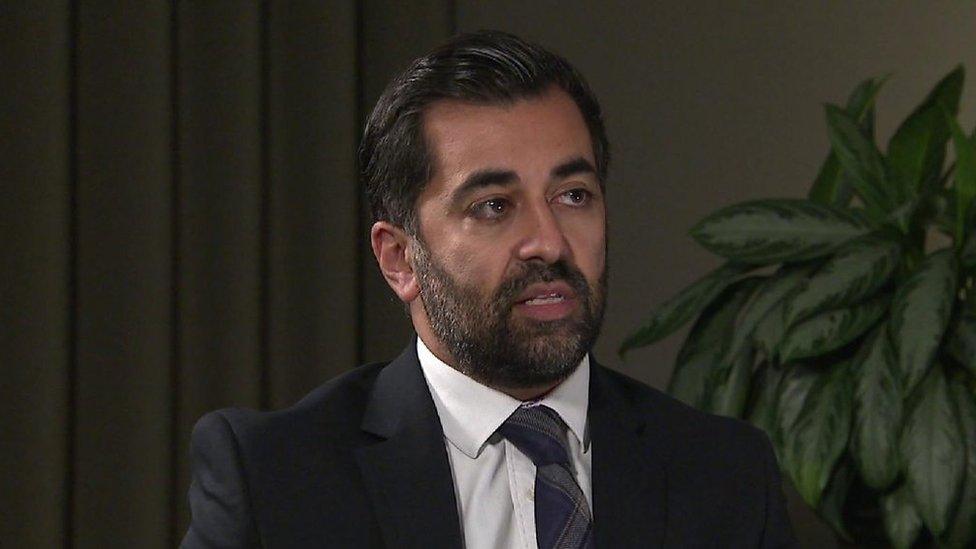Thousands march in pro-Palestine rallies across Scotland
- Published
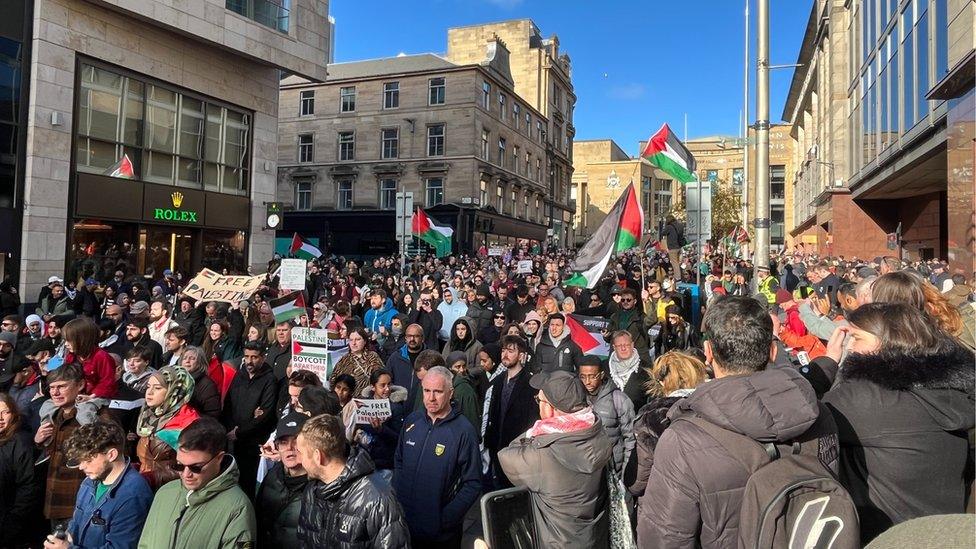
Demonstrators marched through the streets of Glasgow in support of Palestine
Thousands have marched through the streets of Glasgow as part of pro-Palestine protests across Scotland.
Organised by the Scottish Palestine Solidarity Campaign (SPSC), demonstrators met at 14:00 in Glasgow, Edinburgh, Aberdeen and Dundee.
The group said the purpose of the gatherings was to condemn the government of Israel and express solidarity with the Palestinian people.
Protests took place across the UK, including in London and Manchester.
It comes a week after Hamas launched an unprecedented attack on Israel.
Fighters from the the Palestinian militant group entered communities near the Gaza Strip, killing at least 1,300 people.
Nearly 2,000 people have been killed in Gaza since Israel launched retaliatory air strikes and a ground offensive is also expected.
In Glasgow, protesters met on the Buchanan Street steps before marching to BBC Scotland headquarters at Pacific Quay.
Bath Street had to be closed due to the number of people attending the demonstration - Glasgow City Council officials confirmed the street later reopened.
Thousands of people turned out at pro-Palestinian rallies across Scotland
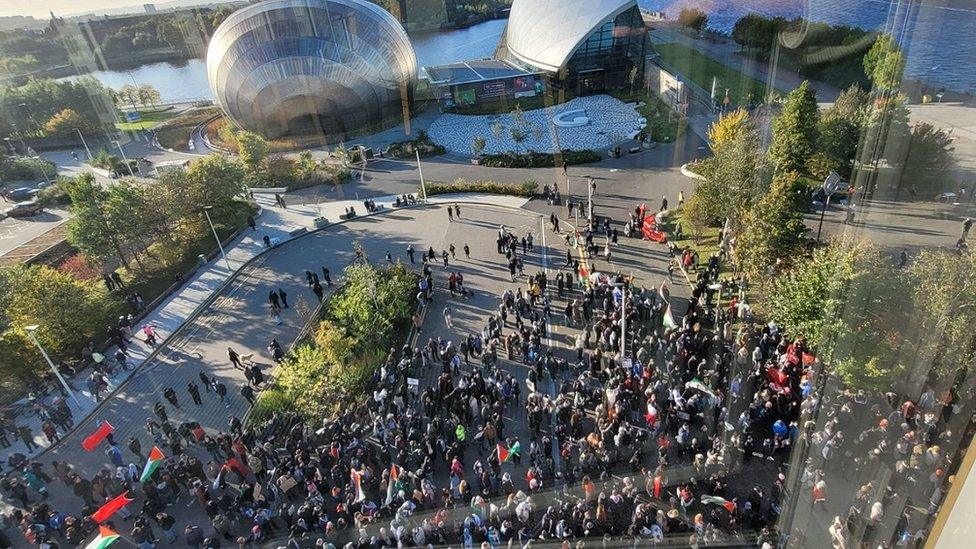
Demonstrators in Glasgow assembled outside the BBC Scotland headquarters after marching through the city centre
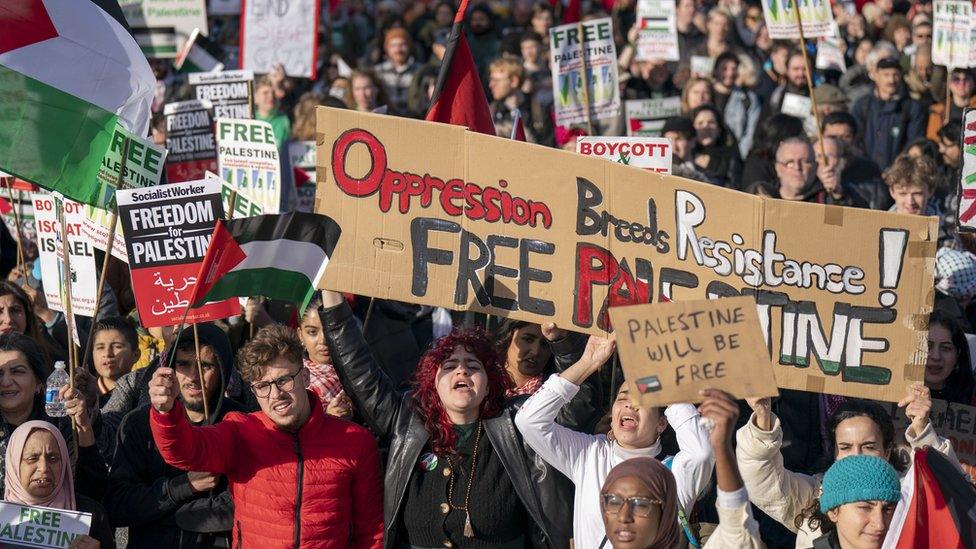
A similar protest took place in Edinburgh beginning at Princes Street
In Edinburgh demonstrators marched from Princes Street up The Mound and along the Royal Mile to the Scottish Parliament.
Six activists with Israel flags attended the demonstration as a counter-protest.
Police Scotland said it was engaging with national partners to ensure communities were safe.
A spokesperson added: "Our priority is public safety and we will have an appropriate policing plan in place to facilitate peaceful protest and minimise disruption to our communities."
The force later confirmed there had been no arrests in Scotland over the protests.
The Scottish government has pledged a £500,000 aid package to help the UN set up a humanitarian corridor.
Christina McKelvie, international development minister, said the funds would support "people who are caught up in the conflict who are innocent civilians."
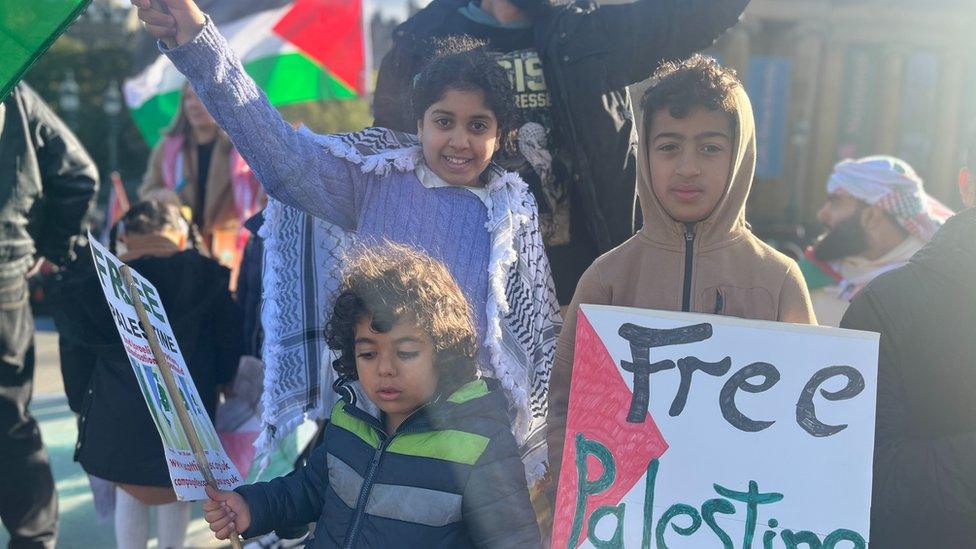
Eight-year-old Bassel (right) from Egypt, who lives in Edinburgh, briefly addressed the crowd as they gathered in the capital
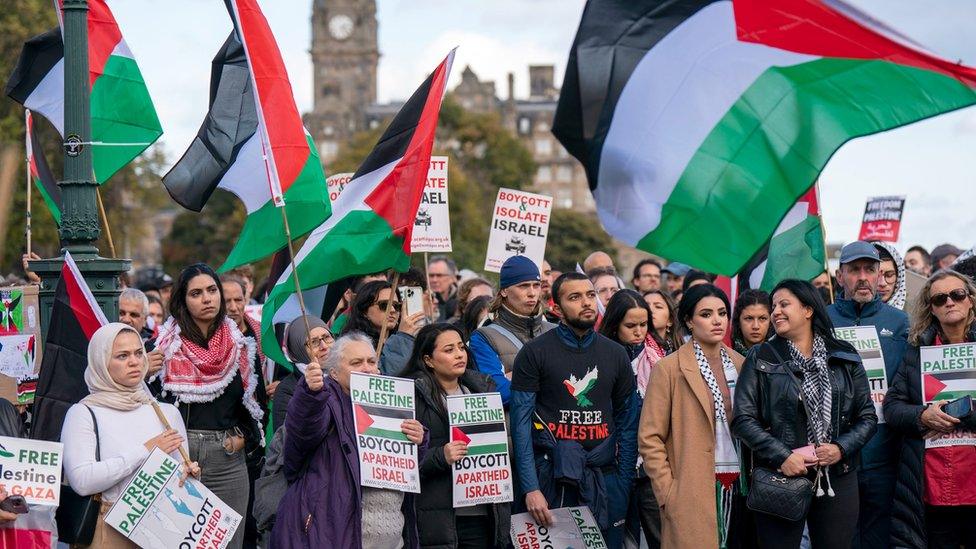
Crowds in Edinburgh held Palestinian flags as they attended the protest
Protests have also been held in Dundee and Aberdeen in support of the people of Palestine.
The Palestinian militant group Hamas launched an unprecedented attack on Israel on 7 October, with its fighters entering communities near the Gaza Strip.
Following retaliatory strikes by Israel, the death toll has reached 2,215, with 8,700 people injured, according to the Palestinian Health Ministry.
Israel has told everyone in the north of the Gaza Strip - about 1.1 million people - to relocate to the south of the territory within 24 hours.
The UN said this is not possible and asked Israel to withdraw the order, warning of "devastating humanitarian consequences".

'Memories of the Second World War'
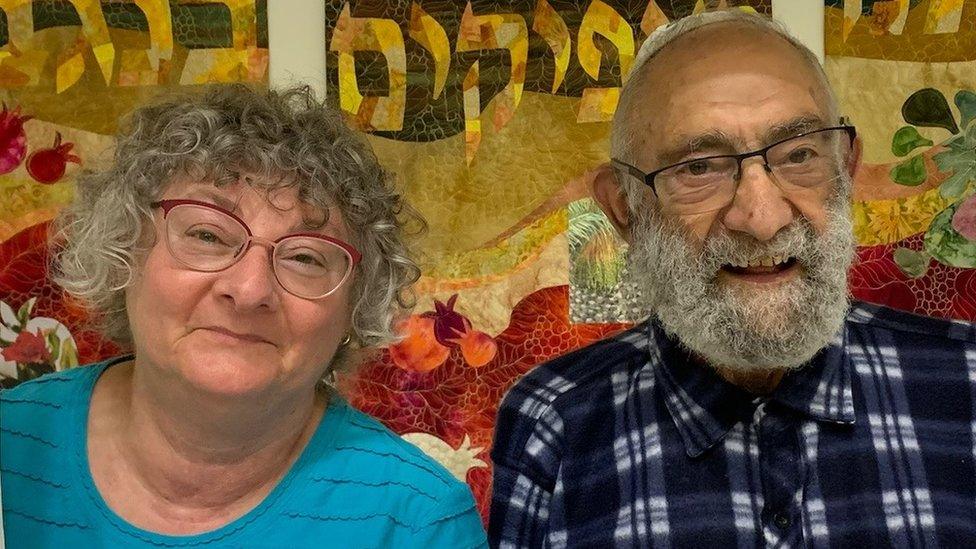
Debbie Taylor with her father, Albert, who lives near the Gaza border and has been forced to take cover in his bomb shelter
Debbie Taylor moved to Scotland to be with her partner years ago and for a time, ran the UK's most northerly synagogue in Aberdeen.
Her father Albert, age 92, lives 25 miles from the Gaza border.
Although they are able to call and email each day, she worries about the impact the conflict is having on him.
"He says it's bringing back memories of the Second World War," she told the BBC. "The images that we've seen are just horrendous.
"My parents always kept their front gate locked, always kept their front door locked. My father has a very thick steel front door, because what is happening in the past week - they lived in fear of.
"Of course we're stuck here, and he's there in a house on his own. It's extremely difficult."
Debbie said she watches an app on her phone that alerts her to the time and location of rocket strikes near where Albert lives.
The situation, she says, has prompted some difficult conversations.
"As chipper as he's making out he is, I know that he is affected by it," she said. "We had to have a conversation along the lines of, well, what happens if you're out in the street and you get hit by a rocket?
"It was a really, really difficult conversation for him and he really didn't want to have to enter it. We as a family didn't want to have it."

Rallies have also taken place in a number of UK cities including London, Manchester, Liverpool, Bristol, Cambridge, Norwich, Coventry, and Swansea.
In London several thousand people marched from the BBC's New Broadcasting House to Downing Street. More than 1,000 police officers were deployed.
Addressing the gathering in London, former Labour leader Jeremy Corbyn said British politicians should not condone Israel's bombing campaign.
Describing the march as a "day of solidarity", the now-independent MP said: "If you believe in international law, if you believe in human rights, then you must condemn what is happening now in Gaza by the Israeli army."
- Published15 October 2023
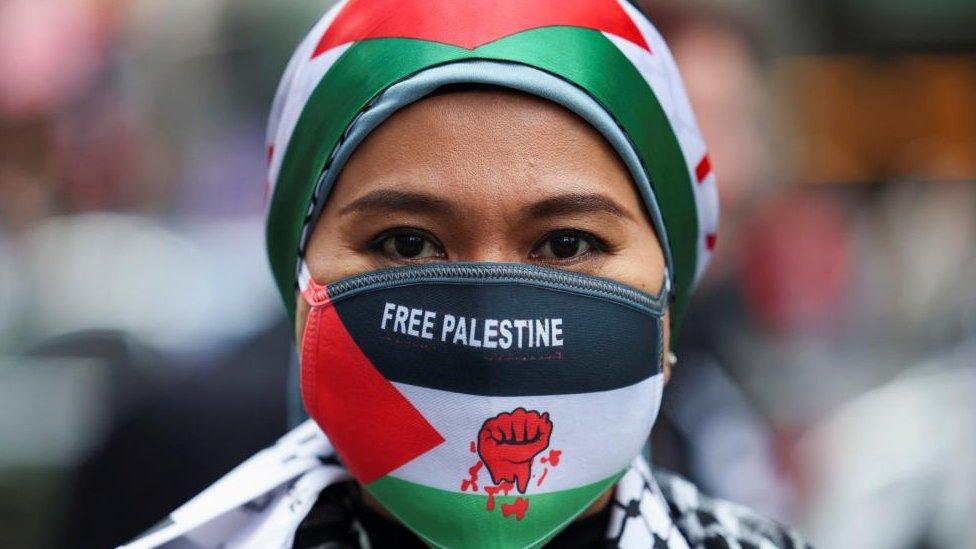
- Published13 October 2023
